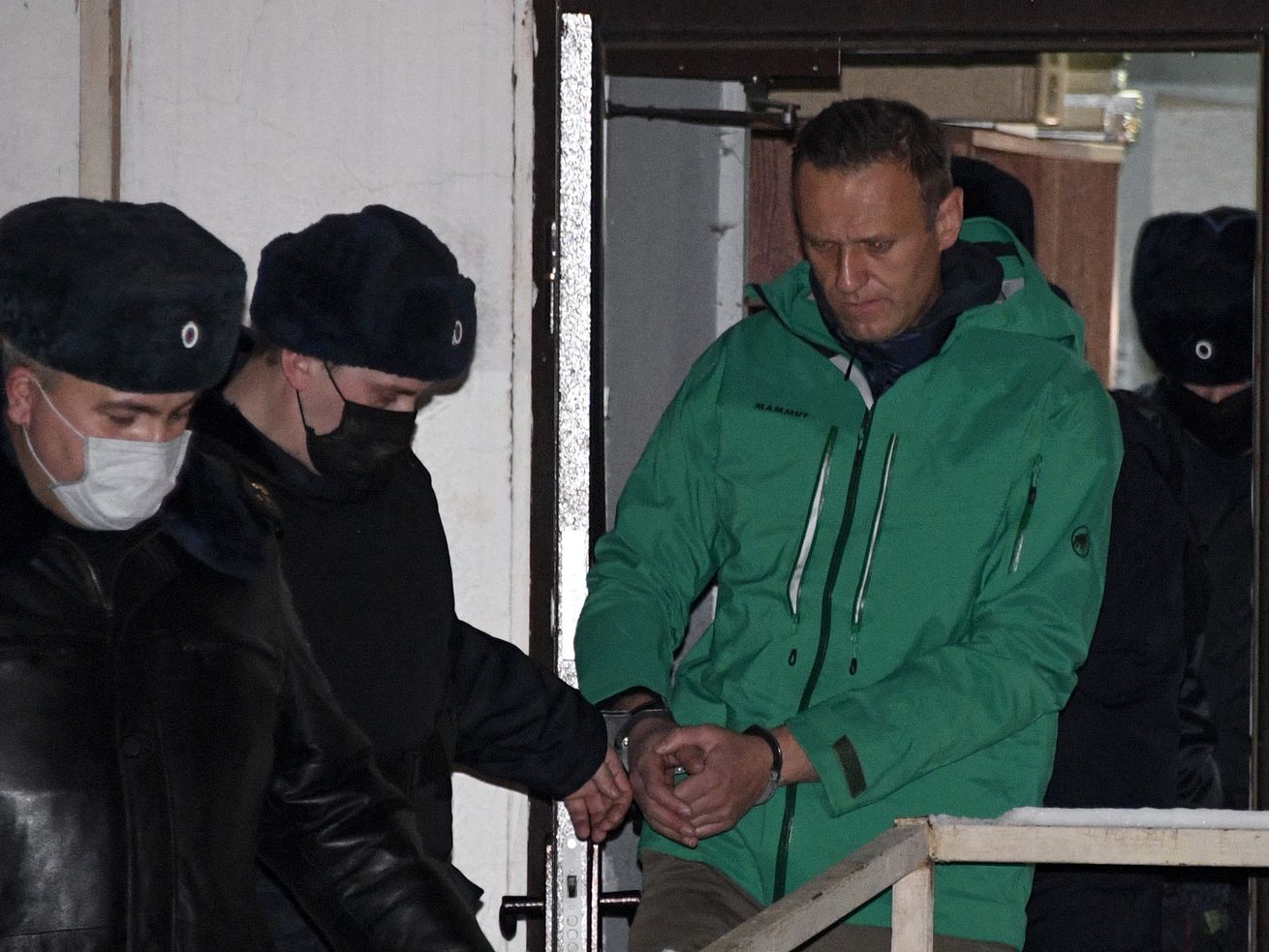The sanctions put the US in line with actions taken by the European Union and United Kingdom last year.
The Biden administration on Tuesday will sanction seven senior Russian government officials as well as 14 organizations over the attempted murder and then jailing of pro-democracy leader Alexei Navalny, four senior administration officials told reporters.
That action puts the US in line with sanctions imposed last October by the European Union and United Kingdom on Kremlin officials close to Russian President Vladimir Putin, most prominent among them Alexander Bortnikov, the chief of Russia’s domestic spy agency known as the FSB.
However, the American officials would not disclose the names of the individuals or entities that will be sanctioned during the call Tuesday morning. Those identities are to be revealed later, perhaps during the White House’s Tuesday briefing, but they are expected to match almost identically to the EU’s and UK’s sanctions.
What the Biden administration officials did say, though, was that the US intelligence community has concluded with “high confidence” that the FSB sought to kill Navalny with Novichok, one of the world’s most lethal nerve agents that was developed by the Soviet Union. That assessment — and Russia’s detention of Navalny following his return to the country after recovering from the attack in Germany — led the US to join with its allies in penalizing Russian leaders.
“We’re exercising our authorities to send a clear signal that Russia’s use of chemical weapons and violation of its international human rights commitments have severe consequences,” one of the senior administration officials said.
The sanctions will worsen US-Russia ties and likely not help Navalny
The Tuesday action marks the first time President Joe Biden is placing new sanctions on Russia since taking office, underscoring the more combative stance he’s taken against the country compared to his predecessor.
Since his first call with Putin in January, Biden has looked to reprimand Moscow over its aggressive actions worldwide. It’s possible more punishments are to come, too, as one of the senior administration officials on the call said announcements about the SolarWinds hack, election interference, and alleged Russian-financed bounties on US troops in Afghanistan will be announced in “weeks.”
“The United States is neither seeking to reset our relations with Russia, nor are we seeking to escalate,” that official said. “We believe that the United States and our partners must be clear and impose costs when Russian behavior crosses boundaries that are respected by responsible nations. And we believe that there should be guardrails on how these adversarial aspects of our relationship play out.”
The problem is that the sanctions are unlikely to improve Navalny’s situation. He’s been sent to a notoriously harsh penal colony to serve an over two-year sentence. According to the New York Times, prisoners at this facility aren’t allowed to interact with one another or even talk.
The EU considered Navalny’s legal proceedings a show trial and sanctioned four people the bloc deemed responsible for it on Monday. That was the first time the EU had exercised new authorities to punish foreign officials for human rights violations.
Few experts believe the US-imposed sanctions — joining its EU and UK counterparts — will greatly change the situation. In fact, the ruble, Russia’s currency, rebounded from previous losses after learning that the forthcoming sanctions wouldn’t be so severe.
“It will impose costs on Russia, but the costs are totally bearable,” Alexander Gabuev, a senior fellow at the Carnegie Moscow Center, told the Washington Post.
The sanctions announced by the Biden administration, then, put the US more in line with its global partners and on a confrontational path with Russia. That’s important on its own, but Navalny’s fate will most likely remain the same.
Author: Alex Ward
Read More



